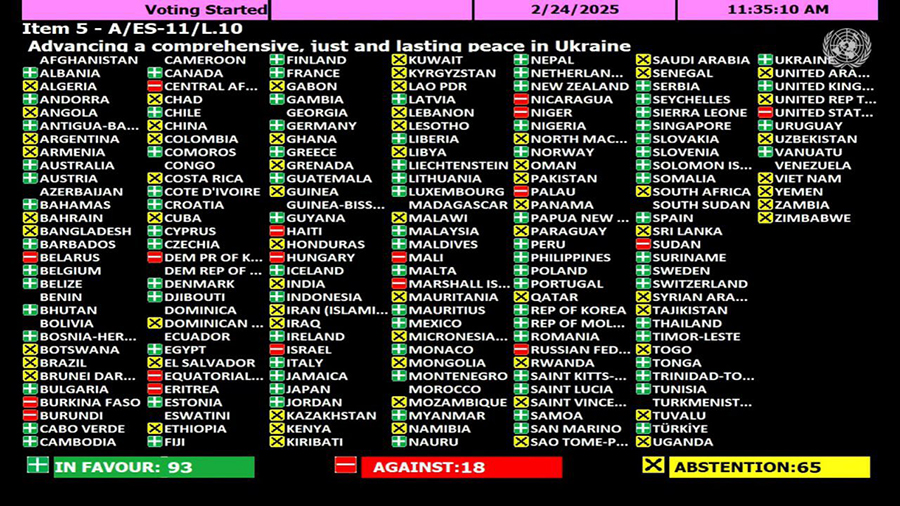
Nearly half of the world’s population today is young under the age of 25 years old. However, being a young person in these times is challenging. Young people in Nepal and the world in a bigger picture face several issues such as the energy crisis, food scarcity, social violence, political chaos, climate crisis and growing economic inequality. The rise of the digital age also means that we are more informed than ever about world events, and most of the news is disheartening.
The constant influx of negative news and corrupt political leaders demotivates young people and crushes their hope for a better tomorrow. Corruption permeates even basic services such as education and health, while a small group of elitist people accumulates more resources and power, leaving the majority unable to even meet their basic needs. Common people have to face extreme hardships just to survive in today’s times.
The young people of today need to pause for a few seconds to contemplate everything that is happening and what they hope for the future. There is a big weight on the shoulder of young people to change all of this, rectify all the injustice in our society and create a stable community where everyone has access to their basic human rights and can thrive to their full potential.
As a youth climate activist, I have been working in the climate field for the last six years, raising awareness among young people and advocating for urgent action on both national and international platforms. A significant portion of my time, roughly 70 per cent, is spent on voluntary work. Still, we continue to do the work because we deeply care about the world around us and realise the obligations that come with being the youth of today. I believe this applies to most young people engaged in every sector, whether social, business, law, politics and more.
It means everyone needs to support us. Here are five ways to support the young people of today.
1. Encouragement

One of the most powerful ways to support young people is through genuine encouragement. While money can be helpful, it is not as lasting or meaningful as validation and support from peers and elders. Young people often question whether they are making the right decisions in life, especially when they are working towards a cause they believe in.
Thus, it is important to be there for them to talk and share guidance, providing sustained and authentic support. In today’s connected world, social media offers a great opportunity to appreciate and acknowledge their work, offering extra insights or ideas for how they can improve. By showing that they are not alone in their efforts and that their work is valued, young people can feel encouraged and inspired to continue making a positive impact.
2. Enabling structures

Whether you agree or disagree, it is a fact that most institutions, including workplaces and decision-making processes, were not designed to accommodate young people and their unique needs. This often makes it challenging for them to feel welcome and to exist within such spaces. Although organisations have protocols in place to facilitate their operations and prevent possible errors, it is crucial to acknowledge that these protocols may not always be suitable for young people to fit in.
This is one of the main reasons why many young people are starting their businesses or organisations, be they non-profit or volunteering. While this is a good thing, it is important to note that it takes time to establish and build partnerships and trust for swift work and delivery, and it seems beneficial to contribute input and share value with an existing organisation and work together.
Being young is regarded as synonymous with changemakers and trailblazers. But in reality, they alone cannot be the changemakers that society wishes us to see. As an African proverb states, “Young people can walk fast, but elderly people know the way.” Time is of the essence and we cannot afford to waste any more of it. Therefore, institutions and governments must create structures that promote intergenerational cooperation and enable young people to participate wherever necessary. The value that young people bring to the table is far more worth it than the effort and resources that may be required to accommodate them.
3. Financial accessibility

Young people are brimming with creative ideas and innovations. But, unfortunately, they often struggle to bring their ideas to life due to a lack of funding. Many of them aspire to represent their country in global forums and showcase their work. However, they are unable to do so due to a lack of financial support.
According to a study, only 0.76 per cent of philanthropic funds are provided to youth-led climate initiatives, which is woefully inadequate as they are the ones who are moving the needle up on the climate justice movement. Therefore, those who possess resources, connections and privilege should extend a helping hand to young people by providing them with access to funds and helping them use those funds effectively.
Young individuals in the contemporary world no longer find it satisfactory to dedicate their time and effort solely to volunteer work as they aim to achieve financial independence while pursuing their desired profession. Hence, it is imperative to pay young people, even if they are interns or volunteers, as it will enable them to continue doing the work they love. When inviting young people to speak at a public forum or panel session, it is crucial to compensate them for their time and the value they bring to the table. While someone from an organisation may receive compensation for their time and travel expense, young people often do not have this privilege.
4. Access to information

Information is a powerful tool that can make a significant difference in the lives of young people. While everyone has their own pace and priorities, access to information can play a significant role in determining one’s success. There are various opportunities for people to enhance their skills, access funding and participate in workshops and consultations. But they may not be aware of them due to a lack of access or clarity of the information. Helping young people gain access to information can be instrumental in their growth and development.
5. Avoiding hypocrisy

Young people believe in taking ownership and control over their situations rather than solely relying on fate. Despite facing challenges, they are aware of the problems and potential solutions. However, we feel that politicians, businesses and decision-makers are not paying enough attention to solving these problems. What is even worse is when decision-makers and companies claim to be working towards solutions but are hindering progress by diverting the agenda and controlling media to generate fake news. This creates even more anxiety for young people, as it undermines their hope and optimism.
Despite all the hardships and making their way amid personal struggles, family responsibilities, self-doubt and insecurity, the young people of today are actively involved in addressing various social issues and making efforts to improve their communities and nations. Their commitment to bringing the change the world needs is an inherent power that cannot be acquired from money or technology. It is vital that we harness and utilise this power to bring the necessary changes in society.

























